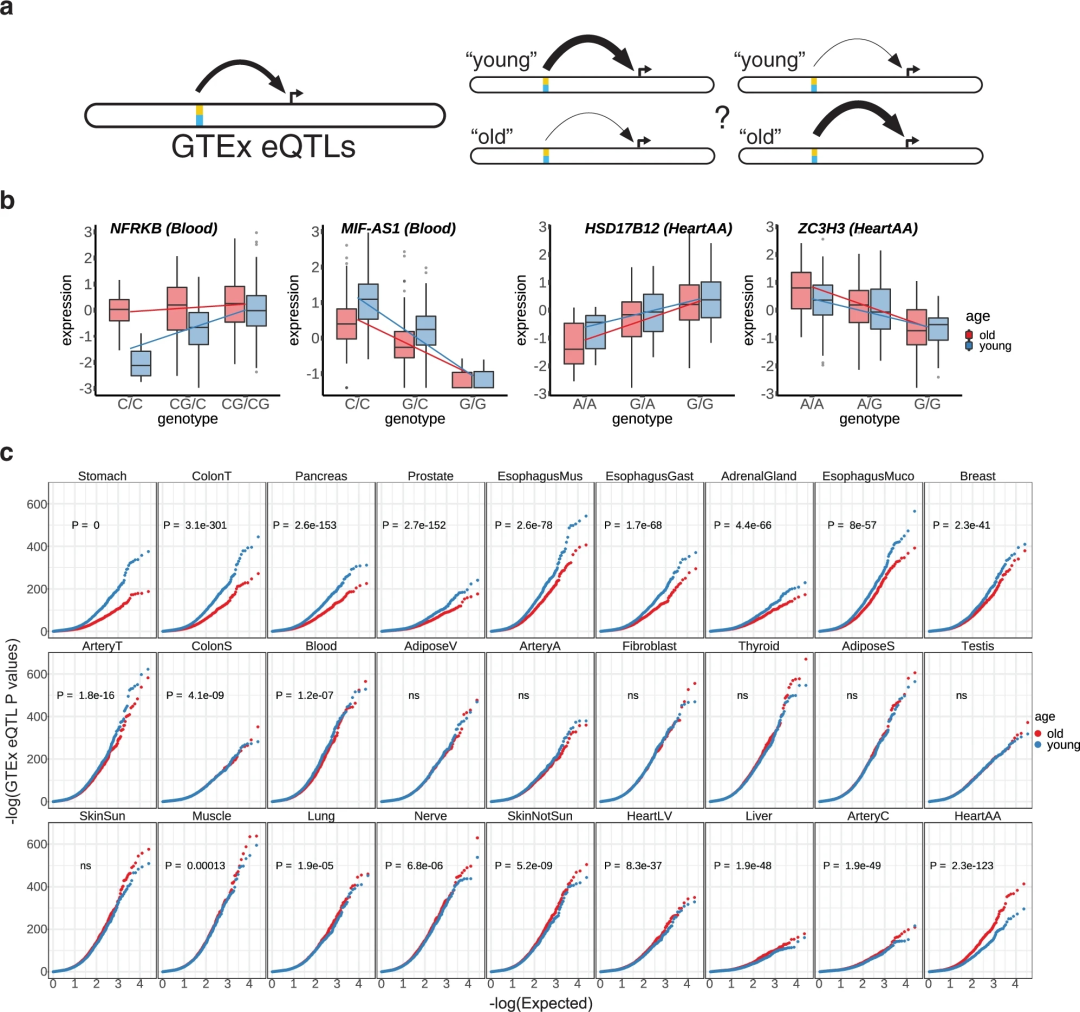
加州大学伯克利分校研究团队在Nature Communications发表题为“Tissue-specific impacts of aging and genetics on gene expression patterns in humans”的研究成果。研究表明年龄在决定我们身体中哪些基因能表达方面,发挥着比遗传更重要的作用,且影响疾病的易感性。
Abstract
Age is the primary risk factor for many common human diseases. Here, we quantify the relative contributions of genetics and aging to gene expression patterns across 27 tissues from 948 humans. We show that the predictive power of expression quantitative trait loci is impacted by age in many tissues. Jointly modelling the contributions of age and genetics to transcript level variation we find expression heritability (h2) is consistent among tissues while the contribution of aging varies by >20-fold with \({R}_{{{{{{{{\rm{age}}}}}}}}}^{2} \; > \;{h}^{2}\) in 5 tissues. We find that while the force of purifying selection is stronger on genes expressed early versus late in life (Medawar’s hypothesis), several highly proliferative tissues exhibit the opposite pattern. These non-Medawarian tissues exhibit high rates of cancer and age-of-expression-associated somatic mutations. In contrast, genes under genetic control are under relaxed constraint. Together, we demonstrate the distinct roles of aging and genetics on expression phenotypes.
